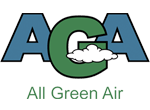New York State Mold Laws
N.Y.S Certified Instructor | Free Phone Consults | Veteran & Senior Discounts
Fully Certified
Free Phone Consults
Veteran and Senior Discounts
State-Certified Mold Inspectors
All Green Air LLC is fully certified by the state of New York for all mold testing and inspection services. Please read below for details about the specific laws that govern these services in New York.
Any questions? Contact All Green Air - we're available seven days a week. We hold a 5-star customer rating from Google for providing the highest caliber of mold service
New York Assembly Bill S3667D (2015) - Signed February 3, 2015
Requires all mold remediation companies and workers to be licensed by New York State. This law takes effect January 1, 2016. This law also requires the licensing of mold inspection.
The mold assessor’s license was created by New York State in an effort to have an independent analysis of the suspected mold.
It is also the responsibility of the assessor to "clear" the project and to determine if the mold has been properly remediated. This assessment will include taking samples, writing a report, determining remediation solutions and then "clearing" the project after the remediation company has finished.
New York's new law defines and regulates "mold." "Mold" means any indoor, multi-cellular fungi growth capable of creating toxins that can cause pulmonary, respiratory, or other major illness after minimal exposure. This exposure is defined by the EPA, the Center for Disease Control and Prevention, National institute of Health or other federal, state or local agencies organized to study and/or protect Human health.
The NYS Mold Law requires licensing of assessors, contractors, workers and a written mold remediation plan prepared by a licensed mold assessment contractor. The mold law will have minimum certification, licensure, and assessment and work practice standards. Minimum work standards for the conduct of mold remediation by a licensed person will require preparation of a mold remediation work plan that is specific to each project. The mold remediator must fulfill all of the requirements of the mold remediation plan developed by the mold assessment licensee as provided to the client and provides specific instructions and/or standard operating procedures for how a mold remediation project will be performed. The mold remediation licensee shall provide the mold remediation work plan to the client before site preparation work begins. Signs advising that a mold remediation project is in progress shall be displayed at all accessible entrances to remediation areas during mold remediation efforts.
The law also establishes a baseline for post-remediation assessment and clearance. For a remediated project to achieve clearance a mold assessment licensee shall conduct a post remediation assessment. A post-remediation assessment shall, to the extent feasible, determine that the underlying cause of the mold has been remediated so that it is reasonably certain that the mold will not return from that remediated area. if it has been determined that the underlying cause of the mold has not been remediated, the mold assessment licensee shall make a recommendation to the client as to the type of contractor who could remedy the source of the mold or the moisture causing the mold.
Article 32 of the New York State Labor Law
The NYS Department of Labor is responsible for enforcing Article 32 of the New York State Labor Law. The NYS Department of Labor establishes licensing requirements and minimum work standards for professionals engaged in mold assessment and remediation. Read more about Article 32 of the New York State Labor Law.


Share On: